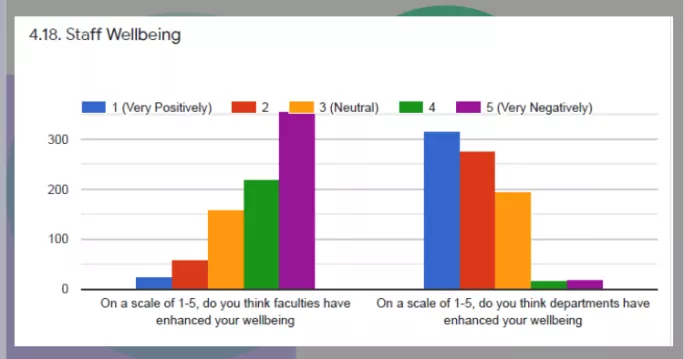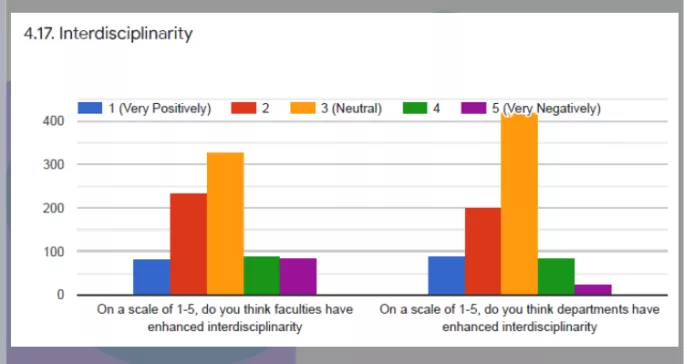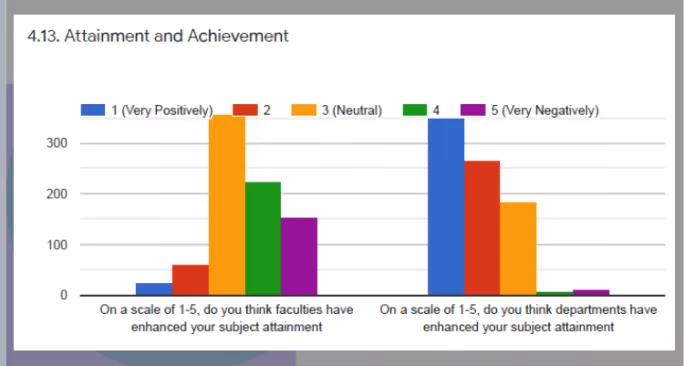Are school faculties only good for saving money?

New research into the introduction of faculties in Scottish schools has found that teachers’ experience of the model is “damning”.
A survey of over 800 teachers with experience of working in both faculties and subject departments has found that they are overwhelmingly negative about the impact faculties have had, on everything from their subject’s status and their own workload, to the attainment and achievement of students.
Faculties started being introduced into Scottish schools around 20 years ago and have led to different disciplines coming together under one faculty head - instead of every subject having a principal teacher.
But the survey finds that even in areas such as improving the links between subjects (“interdisciplinarity”), which the introduction of faculties was expected to enhance, teachers with experience of both models are unenthusiastic about their impact.
- Background: Is the faculty system working in Scottish schools?
- Related: The deal that ushered in the faculty model
- News: Dundee teacher strike called off after legal intervention
Now, one of the academics behind the research is calling for schools and local authorities that have adopted the faculties model “to revert to some kind of subject-based leadership”.
Professor Graeme Nixon, who conducted the research with fellow University of Aberdeen academic Dr William Barlow, also says that Dundee City Council - which is trying to introduce the model into its schools - should “reconsider” and that the survey demonstrates “the paucity of any educational rationale for doing so”.
Last week, the EIS teaching union called off strike action in Dundee secondary schools over the introduction of faculties at the eleventh hour after it secured an interim interdict against Dundee City Council at the Court of Session in Edinburgh.
Dundee City Council was legally prohibited from “implementing” or taking “any further steps to implement” the faculty structure in schools without negotiating with the unions over details like the recruitment process, job descriptions and job remits.
Professor Nixon believes the authority needs to think again and that there is no evidence to support its claim that faculties will improve attainment.
“The results of our quantitative survey are damning for the faculties model even in areas at the centre of any rationale for faculties - such as interdisciplinarity and quality assurance. In these areas, the results are not any better than for the traditional principal teacher model and then, on all the other measures, the principal teacher model is stronger,” he said.
“Teachers feel less supported in faculties, their subjects have less voice, their wellbeing is worse, they do not believe student teachers are mentored as effectively, and they see less prospects for promotion.”


The researchers surveyed a total of 1,282 teachers about their experience of subject departments and faculties; a total of 816 teachers had experience of both management structures.
Around 10 per cent of these teachers thought faculties had enhanced attainment, 46 per cent thought they had not, and 44 per cent said the impact of faculties on attainment was neither positive nor negative.
When it came to subject departments, however, 75 per cent said they had enhanced attainment, 2 per cent said they hadn’t, and 22 per cent said the impact was neither positive nor negative.

In a paper outlining its faculty plans and making the case for the change, Dundee City Council cites the need to improve attainment. It says that Dundee is “in the bottom percentage for performance in comparison to the other 31 local authorities” and that inspection has revealed “a prevailing theme of inconsistent quality in the provision of learning and teaching between subjects”.
It says that faculties “comprised of a family of subjects” will be “instrumental in achieving greater consistency” and that it hopes it will alleviate “the current continued drift of subject [principal teachers] to faculty posts in other local authorities”.
But Professor Nixon said that - on top of the survey findings - an analysis of previous research and views from within Scottish education on faculties showed they were “almost uniformly negative”. In particular, the researchers looked at the multiple editions of Scottish Education and concluded the balance of views was “very much towards the negative”.
According to Professor Nixon, the only thing that faculties have going for them is that they cost councils less. In Dundee, the council estimates it will save in the region of £570,000 a year when faculties are fully implemented because there will be a reduction in the number of principal teacher posts.
However, Professor Nixon questions whether faculties will save councils money in the long run, given that poorer promotion prospects could lead to teachers leaving the profession and higher workloads, and worse wellbeing, could lead to absence from work.
“The costs both human and economic are going to be worse, ultimately, than any savings made by a streamlined system,” said Professor Nixon, who started his career in education as a religious, moral and philosophical studies teacher.
“A lot of the qualitative responses from teachers said ‘this was only a money-saving exercise’.”
In total, the survey - which closed in November - looked at the efficacy of faculty and single department models in 18 areas: supporting subject knowledge; management support for your subject; supporting student teachers; communication with staff; behaviour management; workload; quality assurance; examination preparation; promotions prospects; career-long professional learning; subject status; budgetary autonomy; attainment and achievement; pupil wellbeing; supporting transitions; subject networking; interdisciplinarity; and staff wellbeing.
Just one in 10 teachers - of the over 1,200 that responded - reported being in a school that has retained traditional subject principal teachers. The biggest proportion (60 per cent) reported that their school had a faculty structure, and around 30 per cent said that they had a mixture of faculty and principal teachers.
A Dundee City Council spokesperson said: “We note the decision of the Court of Session and are studying the detail.”
You need a Tes subscription to read this article
Subscribe now to read this article and get other subscriber-only content:
- Unlimited access to all Tes magazine content
- Exclusive subscriber-only stories
- Award-winning email newsletters
Already a subscriber? Log in
You need a subscription to read this article
Subscribe now to read this article and get other subscriber-only content, including:
- Unlimited access to all Tes magazine content
- Exclusive subscriber-only stories
- Award-winning email newsletters
topics in this article



